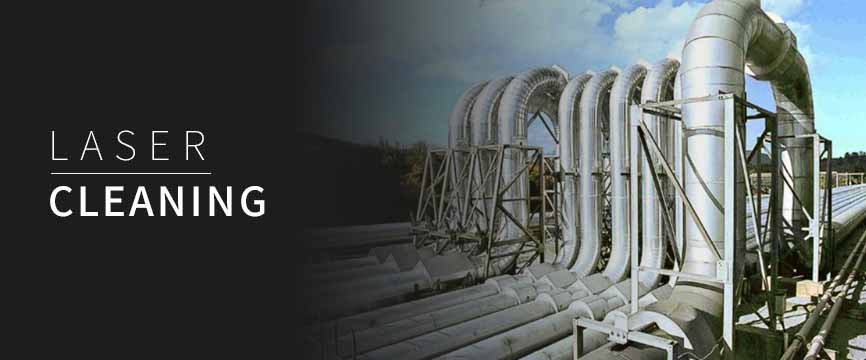 The Increasing use of Laser Cleaners in Industrial Applications
The Increasing use of Laser Cleaners in Industrial ApplicationsThe increasing use of laser cleaners in industrial applications is because of the demand for non-toxic, non-abrasive cleaning methods, which can be substituted for traditional chemical, manual and abrasive jet cleaning methods.
The main problems with traditional cleaning methods include the negative impact on the environment and the wear and tear on the substrate. Sandblasting systems generate large amounts of waste and can damage the fine surface of the substrate and cleaning with chemical solvents generates potentially hazardous vapors and liquid wastes.
The drawbacks of traditional cleaning methods have promoted the application of the laser cleaner in surface cleaning. The laser cleaner has been the most effective machine applied to remove unwanted substances from material surfaces due to its advantages of fewer wastes generated, safety, no chemicals used, and non-abrasive and non-contact processing.
The drawbacks of traditional cleaning methods have promoted the application of the laser cleaner in surface cleaning. The laser cleaner has been the most effective machine applied to remove unwanted substances from material surfaces due to its advantages of fewer wastes generated, safety, no chemicals used, and non-abrasive and non-contact processing.
Pulsed laser cleaners are currently used in a wide variety of applications, from removing vulcanization residues from tire molds and engraved surfaces through ablation, stripping insulating layers from wires to removing coatings from fine surfaces.
1.Surface polishing and rust removal in steel manufacturing: preparing for protective coatings on the surface of parts

The laser cleaner is also an effective and efficient device for removing rust and oxide layers from the surface of metallic materials. Pulsed fiber lasers are preferred because they provide greater control over power, wavelength, and pulse duration, thus allowing the rust or oxide layer to evaporate without causing any damage to the substrate.
The metal surface should be cleaned to remove all contaminants before the protective coating is covered against corrosion so that the coating works as effectively as possible.
The laser cleaner can be operated on a small or large scale, and can also be used in automated processing. The machine adopts an environmental-friendly and cost-effective method to remove rust, which is beneficial for protective coatings later.
2. Surface polishing and rust removal in steel manufacturing: preparing for metal bonds
The laser cleaner can be operated on a small or large scale, and can also be used in automated processing. The machine adopts an environmental-friendly and cost-effective method to remove rust, which is beneficial for protective coatings later.
3. Local removal of coatings
The laser cleaning machine works effectively for the local removal of paint or coatings. Almost all types of material layers can be removed by it, such as chemically anodized layers, oxide layers, or organic coatings. The laser cleaner can be used in the automotive and aerospace industries to remove coatings and paints without damage to cars and aircraft.
The fiber laser cleaner is preferred for coating removal. It is also used for precisely removing the coating from a specified area with high quality.
4. Selective paint removal

Selective paint removal is one of the applications of laser cleaners. In the automotive and aerospace industries, it is sometimes necessary to remove the topmost layer of paint while protecting the primer. Often, the top weathered coatings on vehicles need to be completely removed before new paint is applied. Since the physical and chemical properties of the topmost layer of paint are different from those of the primer, the laser power and frequency of laser cleaners can be set to remove only the topmost layer of paint.
The primer remains intact since the laser cleaner has no mechanical, chemical, or thermal influence on it, which ensures its anti-corrosion. The laser cleaning machine saves time and materials while improving the surface quality of the finished product.
The use of laser cleaners for polishing, surface cleaning, and coating removal is rapidly expanding. Its pulse frequency, energy, and wavelength should be precisely selected to clean, polish, and ablate the material to be cleaned according to corresponding applications. In addition, any damage to the substrate should also be prevented for high-quality cleaning results. In the long term, laser cleaning machines have a promising prospect in the manufacturing industry.
Media Contact
Company Name: LASERCHINA
Contact Person: Kevin
Email: Send Email
Phone: 86-10-64426993
Address:#22 Building, #13 Mintai Road Shunyi District
City: Beijing,101300
Country: China
Website: https://www.laserchina.com/

